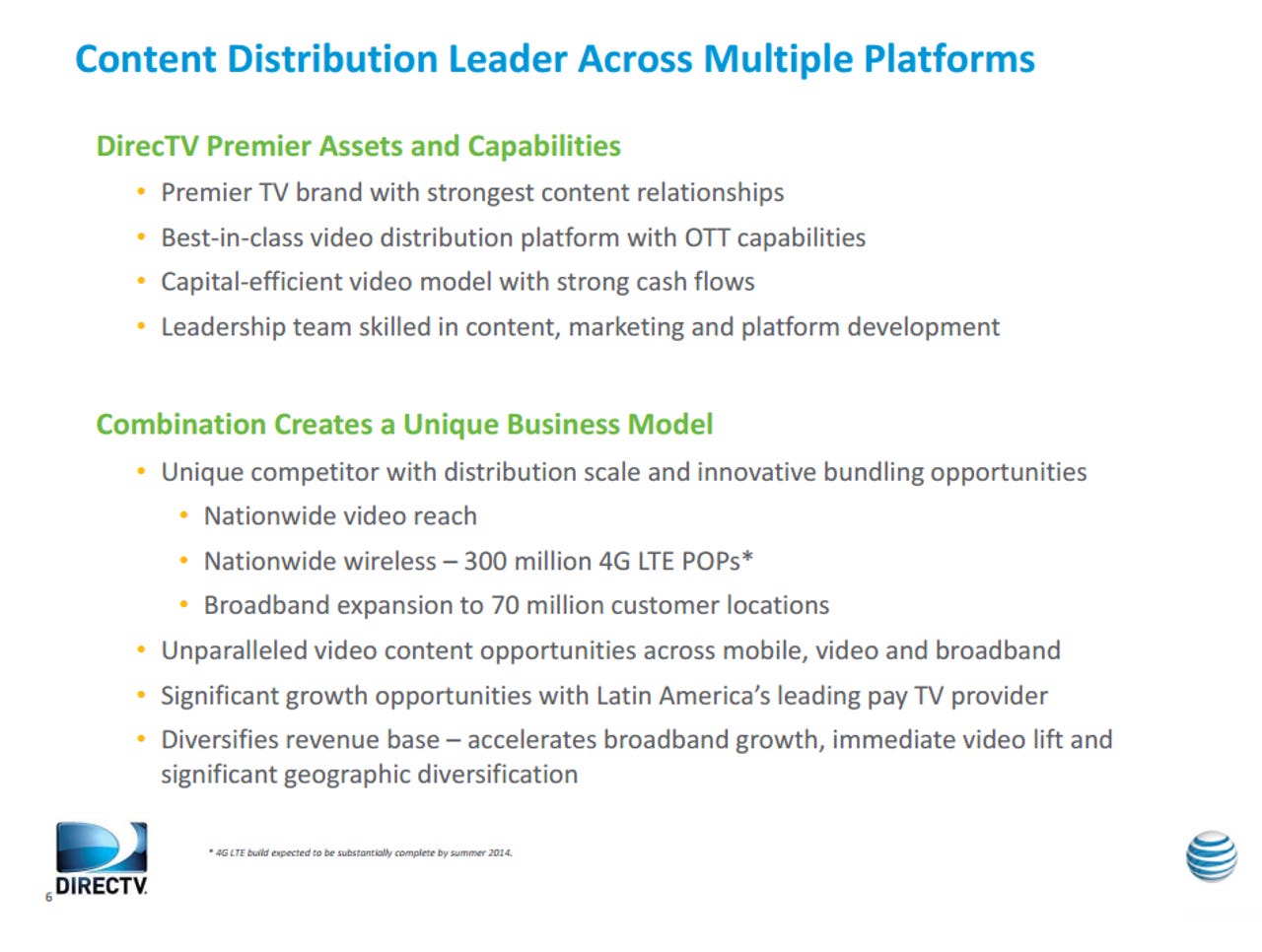AT&T's DirecTV purchase: Get ready for the fallout

AT&T CEO Randall Stephenson said the video will be the future of mobile broadband connectivity and that a $48.5 billion purchase of DirecTV gives the company leverage to negotiate better content costs and add customers.
On the surface, AT&T's acquisition of DirecTV is a bit of a head scratcher. Synergies of $1.6 billion starting in three years are solid, but not great. DirecTV doesn't bring spectrum to the table. And it's unclear how many additional TV subscribers AT&T can land for DirecTV with its retail footprint.
Stephenson positioned AT&T's purchase of DirecTV as a good counterweight to Comcast. Ultimately, AT&T competes with cable companies for broadband connections -- mobile and wired. Stephenson said:
The combination gives us great opportunities to bundle using broad sales capabilities and distribution channels and video is a key growth driver for this entire industry. And this gives us the opportunity to redefine the future of video for a mobile high-speed world. as we develop multiscreen opportunities and build video into all sorts of services. And you just have to be impressed by the opportunities that we are going to have in Latin America.
Perhaps. As CNET's Roger Cheng noted AT&T threw regulators a good bit of concessions even start the conversation with regulators. Stephenson said AT&T and DirecTV are a "natural complementary strategic fit" and ultimately increases competition.

Stephenson added that the deal "gives us the opportunity to lead the way and to redefine the video entertainment business for mobile in a high-speed world. That includes delivering content to consumers across multiple screens, mobile devices, TVs, laptops, the backseat displays of connected cars and even airplanes."
Like every merger after it's announced the future is bright. The fallout after the deal is usually a lot more fun. Here's a look at the moving parts:
- AT&T lands DirecTV and then what? The integration points between the two companies revolve around video and mobile convergence. That day will come, but if it doesn't happen fast AT&T's master plan won't work out quickly.
- What will Dish do? Analysts were quick to note that the Dish Network is likely to get involved somehow and maybe make a bid for DirecTV too? Dish has spectrum and has tried to acquire Sprint before yielding to Softbank. Dish could also try to acquire T-Mobile.
- Did AT&T just help Comcast? Comcast's purchase of Time Warner Cable has raised a few hackles and is being evaluated by regulators. AT&T buying DirecTV may ease concerns about Comcast dominating.
- Sprint and T-Mobile becomes more likely. It's possible that regulators would look at Sprint and T-Mobile as a combination that could improve competition -- especially if AT&T is bulked up. Wells Fargo analyst Jennifer Fritzsche said in a research note:
- For Sprint and T-Mobile, we actually believe this news helps (not hurts) their cause for a potential merger. While we recognize that the AT&T/DirecTV merger is a vertical deal and does not take out a competitor, we think the size of the resulting company very much shines the light on the lack of scale Sprint and T-Mobile would have in this changing world.